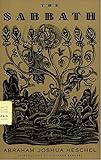 The other day I was reading Christ and His Righteousness by E. J. Waggoner of 1888 fame. In it Dr. Waggoner states, “Every doctrine of the Bible is for our practical benefit, and should be studied for that purpose. I immediately thought of The Homiletical Plot by Eugene Lowery which encourages us to ask the question “What bind does a doctrine get us out of?” I like the question and have come back to it often in the past as can be shown in this post from the past.
The other day I was reading Christ and His Righteousness by E. J. Waggoner of 1888 fame. In it Dr. Waggoner states, “Every doctrine of the Bible is for our practical benefit, and should be studied for that purpose. I immediately thought of The Homiletical Plot by Eugene Lowery which encourages us to ask the question “What bind does a doctrine get us out of?” I like the question and have come back to it often in the past as can be shown in this post from the past. 
I will also come back to the question in the future. Answering that question will force the sermon and teaching to be practical and has the added benefit of helping the congregation to understand what good is a doctrine for daily living.
After stating that we must look for the Practical benefit Dr. Waggoner then tries to tackle the Sabbath doctrine and seeks to point us to a practical basis for understanding the doctrine. In the next couple of posts we will look at this attempt.

